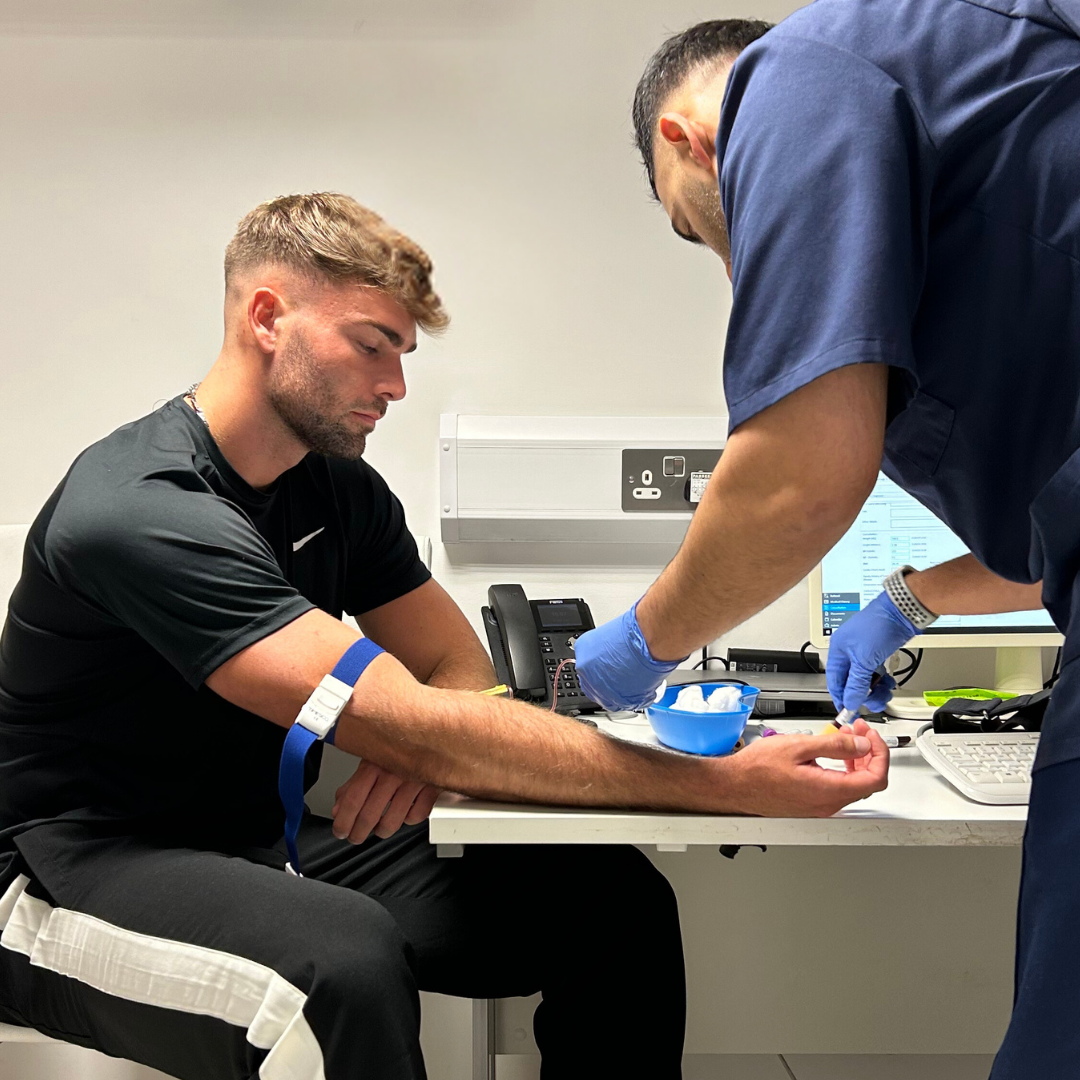Blood tests are crucial diagnostic tools used to assess various aspects of your health, from overall wellness to the detection of specific conditions. They are commonly used to monitor organ function, evaluate the effectiveness of treatments, diagnose diseases, and detect infections or deficiencies. Blood tests provide important information that can help doctors make informed decisions regarding your healthcare.
There are many different types of blood tests, each designed to evaluate particular markers or substances in the blood, such as glucose, cholesterol, vitamins, or hormones. Whether part of a routine health check-up or used to monitor chronic conditions, blood tests can help catch potential health issues early, ensuring better outcomes. In this article, we’ll explore the various types of blood tests, what they measure, and how they can aid in both preventative care and treatment planning.
Allergy and immunology tests
“Allergy and immunology blood tests are used to assess the body’s immune response and identify allergic reactions or autoimmune conditions. These tests can help diagnose a wide range of issues, from food and environmental allergies to immune system disorders. They provide valuable insights into how the body’s immune system is functioning and can help guide treatments for allergies, asthma, or autoimmune diseases.” says Dr Tang, our private GP.
For example, IgE testing is a common immunology test used to identify specific allergies to foods, pollen, dust, or pet dander. This test measures the level of Immunoglobulin E (IgE) antibodies, which are produced when the body reacts to allergens. Another common test, the antibody test, is used to detect autoimmune diseases like rheumatoid arthritis or lupus, where the immune system mistakenly attacks healthy tissues.
These tests play an essential role in identifying underlying causes of symptoms like persistent coughing, skin rashes, or joint pain, helping doctors provide a more accurate diagnosis and personalised treatment plan.
Biochemistry tests
“Biochemistry blood tests are designed to measure various chemical substances in the blood, such as enzymes, proteins, hormones, and metabolites. These tests play a vital role in diagnosing and monitoring a wide range of medical conditions, particularly those related to organ function, metabolism, and overall health.” explains Dr Tang.
For example, liver function tests (LFTs) assess the levels of enzymes and proteins in the liver, helping diagnose liver diseases like hepatitis, cirrhosis, or fatty liver disease. Kidney function tests, such as measuring creatinine and urea levels, can reveal signs of kidney dysfunction or kidney disease. Biochemistry tests also include lipid profiles, which measure cholesterol and triglyceride levels and help assess the risk of cardiovascular diseases.
These tests are essential for monitoring conditions like diabetes, metabolic disorders, and thyroid imbalances, where hormone and enzyme levels may be out of balance. They provide crucial information about the functioning of key organs and are often used to guide treatment decisions and track the progress of ongoing health conditions.
Cancer risk tests
“Cancer risk tests are used to identify factors that may increase the likelihood of developing certain cancers. These tests measure biomarkers or genetic mutations in the blood that could indicate a higher risk. For example, BRCA1/BRCA2 genetic testing can identify mutations linked to breast and ovarian cancers, while the prostate-specific antigen (PSA) test measures a protein in the blood that can be elevated in prostate cancer.” says Dr Tang.
Though these tests do not provide a definitive cancer diagnosis, they help healthcare professionals identify individuals who might benefit from more frequent screenings or preventative strategies. By detecting early indicators of cancer risk, these tests allow for proactive management, ensuring that patients have the opportunity to take preventive action, such as adopting healthier lifestyle choices or starting earlier and more regular monitoring. Early detection is often key to successful treatment, so cancer risk tests are essential tools in cancer prevention and health management.
Cardiovascular health tests
Cardiovascular health tests measure various biomarkers related to the heart and blood vessels, helping identify risk factors for heart disease and stroke. These tests evaluate key indicators such as cholesterol levels, blood pressure, and glucose levels, which are closely linked to cardiovascular health. A lipid profile test, for instance, checks the levels of LDL (bad cholesterol), HDL (good cholesterol), and triglycerides, providing insight into heart disease risk. The hs-CRP (high-sensitivity C-reactive protein) test assesses inflammation levels in the body, which can indicate the risk of heart attacks or other cardiovascular conditions.
“Regular testing can uncover silent risk factors that might go undetected otherwise, enabling early intervention. By monitoring these indicators, healthcare professionals can work with patients to manage and mitigate their risk through lifestyle changes, medications, or other interventions, ultimately helping to improve cardiovascular health and reduce the likelihood of heart-related problems in the future.” Dr Tang shares.
General health
General health tests provide an overview of your overall wellness by monitoring various markers in your blood. These tests are essential for assessing the function of vital organs, identifying early warning signs of potential health issues, and ensuring that your body is functioning optimally. Common tests include complete blood count (CBC), which evaluates red and white blood cells, and helps detect conditions like anaemia, infections, or blood disorders.
Tests measuring kidney function, liver function, and glucose levels are frequently included to monitor the health of critical systems. Regular general health tests can reveal conditions that may not yet show noticeable symptoms, allowing for early intervention. Additionally, these tests provide a baseline that can be useful in tracking your health over time. Whether it’s ensuring you’re on track with your health goals or preventing diseases, general health tests offer valuable insights into your well-being and help guide proactive health decisions.
Haematology tests
Haematology tests focus on analyzing the blood's components to diagnose or monitor blood-related conditions. One of the most common tests is the complete blood count (CBC), which evaluates the concentration and health of red and white blood cells, platelets, and haemoglobin levels. Abnormal results may indicate issues like anaemia, infections, or leukaemia. Coagulation tests assess the blood's ability to clot and are particularly important for those with a history of bleeding disorders or on blood-thinning medications.
“These tests help doctors identify clotting disorders such as haemophilia or deep vein thrombosis. Haematology tests are also used in diagnosing bone marrow disorders, such as multiple myeloma. By providing insight into your blood's function and composition, these tests can be crucial in detecting early signs of serious conditions, monitoring ongoing treatments, and developing personalised care plans. Regular haematology testing can help detect potentially life-threatening conditions before they become more severe.” explains Dr Tang.
Hormonal and endocrine tests
Hormonal and endocrine tests measure levels of hormones, which regulate vital body functions such as metabolism, reproduction, and growth. Tests for thyroid function, such as measuring levels of thyroid-stimulating hormone (TSH), can identify conditions like hypothyroidism or hyperthyroidism, which affect energy levels, weight, and mood. Sex hormone testing (e.g., estrogen, progesterone, testosterone) is important for reproductive health and fertility, particularly for individuals experiencing issues with conception or menopause. Adrenal function tests, such as cortisol levels, can diagnose conditions like Addison’s disease or Cushing's syndrome, which affect stress response and metabolism.
“Hormonal imbalances can lead to a variety of health problems, including weight gain, fatigue, mood swings, and infertility. Through these tests, healthcare professionals gain valuable insight into how well your endocrine system is functioning, enabling timely intervention and personalised treatment for a wide range of conditions that might otherwise go undiagnosed or untreated.” says Dr Tang.
Infectious diseases
Infectious disease tests are essential for identifying and diagnosing infections caused by bacteria, viruses, fungi, or parasites. Blood tests for HIV, hepatitis B and C, and syphilis are common examples of tests that can detect infections that may otherwise remain undiagnosed for a long period. Tests can detect the presence of specific pathogens, antibodies, or antigens that indicate exposure to infectious agents. For example, a rapid antigen test for COVID-19 detects the virus's presence early in an infection, even before symptoms appear.
Early detection of infectious diseases allows healthcare providers to begin treatment as soon as possible, which is especially important for conditions that can lead to long-term complications or be spread to others. “Other tests, such as mononucleosis screening or Lyme disease tests, identify less common infections, enabling targeted treatment. Regular screening for infectious diseases is key to maintaining public health and preventing outbreaks.” explains Dr Tang.
Neurological and mental health
Neurological and mental health tests assess the functioning of the nervous system and brain, as well as mental well-being. Tests may include those that measure brain chemistry, like the vitamin B12 test, which checks for deficiencies that could cause cognitive symptoms such as memory problems, fatigue, or mood changes. Mental health screenings, such as those for depression and anxiety, may be used to assess how mental health conditions affect daily life, helping guide treatment strategies such as therapy or medication. Cognitive assessments measure aspects of memory, attention, and reasoning, which are essential for diagnosing neurodegenerative conditions like Alzheimer's disease.
“By testing neurological health, these tests help doctors detect early signs of conditions such as Parkinson’s disease, epilepsy, or mood disorders, which may otherwise go unrecognized. They also provide essential data for managing ongoing mental health conditions, ensuring appropriate interventions and improving patients’ quality of life.” says Dr Tang.
Nutritional and metabolic health
Nutritional and metabolic health tests assess the body’s ability to absorb and process nutrients, helping diagnose deficiencies or imbalances. For example, vitamin D tests measure the body’s vitamin D levels, which affect bone health and immune function. Glucose tests, such as fasting blood glucose or HbA1c, help diagnose diabetes and assess the body's ability to regulate blood sugar levels. Cholesterol and lipid profile tests monitor fat levels in the blood, identifying risks for heart disease or stroke. Iron tests can diagnose anaemia or iron deficiencies, which lead to fatigue, weakness, and other health problems.
These tests are essential in evaluating how well the body is performing essential functions such as energy production, digestion, and cell regeneration. Dr Tang explains, “Regular screening for nutritional and metabolic health helps maintain balance, avoid deficiencies, and provide a foundation for dietary and lifestyle improvements to optimise overall well-being.”
Reproductive health tests
Reproductive health tests focus on monitoring fertility and diagnosing conditions that impact the reproductive system. For women, tests like ovarian reserve tests and hormonal panels (e.g., FSH, LH) assess fertility and the overall health of the reproductive system. For men, sperm analysis is commonly used to evaluate sperm count, motility, and morphology. These tests provide insight into an individual's ability to conceive naturally or with assisted reproductive technologies. Our GP, Dr Tang, shares, “Cervical screening or HPV testing is used to monitor for signs of cervical cancer in women, particularly those who are at higher risk due to family history or other factors.”
Monitoring reproductive health is important for anyone planning a family, managing pregnancy-related issues, or seeking treatment for reproductive disorders, such as PCOS or endometriosis. These tests help tailor treatment strategies and offer valuable information for improving fertility and reproductive health.
Sexual health tests
Sexual health tests are vital for diagnosing and managing sexually transmitted infections (STIs), ensuring the well-being of both individuals and their partners. These tests can screen for common STIs such as chlamydia, gonorrhoea, syphilis, and HIV. “For women, cervical screening and HPV testing are also essential for assessing the risk of cervical cancer, while HIV and syphilis tests help prevent complications from untreated infections.” says Dr Tang.
Regular screening for these infections is crucial for identifying asymptomatic cases and preventing transmission to others. Early detection enables swift treatment with antibiotics or antivirals, reducing the risk of long-term health issues such as infertility, pelvic inflammatory disease, or chronic illness. Sexual health tests help maintain personal health, ensure safe sexual practices, and support proactive care for anyone who is sexually active or seeking to improve their sexual health and well-being.
How do I know which type of test I need?
Deciding which blood test is necessary can depend on various factors, such as whether it’s part of a routine check-up, driven by specific symptoms, or recommended by a healthcare professional. For instance, if you’re simply maintaining general wellness, a routine health screening may cover all necessary tests. However, if you're experiencing specific symptoms or have concerns (like fatigue, pain, or weight loss), it might be useful to get targeted tests to investigate those issues further. Additionally, some individuals may need tests based on a family history of conditions like cancer or heart disease.
"It's important to take a personalised approach to testing. Your individual health needs and concerns should guide the tests you consider." says Dr Tang, private GP at Pall Mall.
If you're unsure which tests are most appropriate for your situation, it’s helpful to consult with a healthcare provider. At Pall Mall, our team can guide you through your options and help you determine the right tests for your needs. You can also arrange a private GP appointment with us for further advice and to ensure you’re on the best path toward your health goals.
How we group our blood tests
We offer a wide range of blood tests tailored to your health needs. These tests can be booked individually or as part of our comprehensive health screenings, providing a broader overview of your overall health. Our Lifestyle and Well Person tests are some of the most popular options, designed to assess general wellness, early signs of potential health issues, and overall well-being. These health screens can cover a variety of key biomarkers, helping identify areas that may require attention, from cholesterol levels to liver function.
For more detailed assessments, we offer specific tests based on various health conditions, such as cancer risk, hormonal imbalances, cardiovascular health, and more. These individual tests allow patients to focus on specific concerns they may have.
By offering both individual tests and well-rounded health screens, Pall Mall gives you the flexibility to choose how much insight you want into your health. Whether you want a routine check-up or need to target specific areas for closer monitoring, we can provide the best tests to suit your needs.
Contact us to book a private blood test
Booking a private blood test with Pall Mall offers the convenience of quick results, personalised care, and the ability to tailor tests to your specific health concerns - all without the long wait times often associated with the NHS. Whether you're seeking routine testing or a more targeted analysis, our team is here to support your health needs. Contact us today to schedule your private blood test and take proactive steps towards a healthier future.









